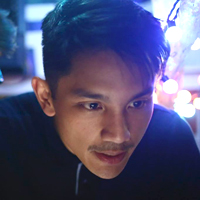 In 2016, I noticed that many doctors were campaigning for Rodrigo Duterte. It was odd, because drug addicts are ill, and here you had healers supporting a man who preferred them dead. That many of these doctors wanted a war on drugs that targeted users instead of medical intervention struck me as contrary to the Hippocratic Oath. Drug addicts are patients, not cockroaches.
In 2016, I noticed that many doctors were campaigning for Rodrigo Duterte. It was odd, because drug addicts are ill, and here you had healers supporting a man who preferred them dead. That many of these doctors wanted a war on drugs that targeted users instead of medical intervention struck me as contrary to the Hippocratic Oath. Drug addicts are patients, not cockroaches.
I asked an anti-Duterte friend from PGH why he thought many of his colleagues were duped by our scammer in chief. “Most of us were trained as technicians,” he said. “Few have any appreciation of humanism because we did not study the liberal arts. So some of us tend to lack empathy.” My friend’s answer explains more than just the behavior of pro-Duterte doctors.
A lot of people dismiss the liberal arts and humanities as useless. Its critics ask how courses like literature, philosophy, and history help you work and make money (they do, but that topic is for another piece). Our results-oriented education makes us forget that we go to school, especially college, not simply to learn how to do things, but to become better citizens and better people. The humanities do this through the power of the written word.
In the 15th century, the term “humanist” referred to philosophical treasure hunters who rummaged through old libraries and monasteries to recover works from ancient Greece and Rome. The Italain Poggio Bracciolini, for example, found the work of the Roman philosopher Lucretius – an Epicurean who had an early theory of atoms – by copying the ancient text from paper that had already been overlaid with religious text (they used ancient correction tape to erase the earlier text). The process was laborious, and the humanists took great pains to ensure fidelity to original and legibility of script (in fact, modern day typography is still based on the elegant penmanship of the humanists).
The humanists venerated texts because they knew that reading changes people. Perhaps at no time did the power of reading become more obvious than in the 18th century. It was at the time when a new literary form, the novel, had spread.
Novels are special because they allow you to enter the minds of other people. The novel does this better than any other medium. Even film can’t compete, because, although the camera captures visual detail, it cannot unfold inner lives as well as the novelist’s pen.

Good novelists create a mind meld between you and their characters. And thinking what others think, feeling what they feel – that’s called empathy. Reading novels is empathy training.
So it is no wonder, explains historian Lynne Hunt, that the French Declaration of the Rights of Man – the first declaration of human rights – was written in the 18th century, at a time when more and more people were reading novels. Human rights are, after all, premised on empathy. To respect the right to life and liberty of people different from you requires imagination. The Dutertian who cannot see the world through the eyes of drug war victims lacks that imagination.
The link between human rights and the novel was present in the Philippines as well. The first person to translate the French Declaration into Tagalog was himself a novelist, an empathetic and sensitive man by the name of Jose Rizal. He translated the declaration to prepare the Philippines for eventual separation from Spain, believing that true independence did not simply require freedom from a colonizer, but freedom from the indignity of a society that does not feel.
That someone like Rizal, who could enter the mind of a poor Indio mother like Sisa or a landless farmer like Cabesang Tales, believed in human rights is hardly surprising. He was not only a novelist; he was also a man steeped in the humanist tradition. His imagination and feeling were broadened by the study of the arts.
I have argued before and will continue to insist that a society that celebrates a criminal against humanity like Duterte is a society in a moral rut. Part of that moral rut stems from a lack of moral imagination. And that imagination is retarded further by our narrow, vocational view of education. We produce technicians before citizens, workers before human beings.
In public forums, I often get asked how progressive Filipinos can restore faith in human rights and democracy after this nightmare of Dutertismo. In the short run, the solution is to stop electing murderous demagogues. In the long run, the solution is to collectively read and write better stories. – Rappler.com
Lisandro E. Claudio (@leloyclaudio on Twitter) teaches history at De La Salle University. He is the host of Rappler.com’s web series Basagan ng Trip.